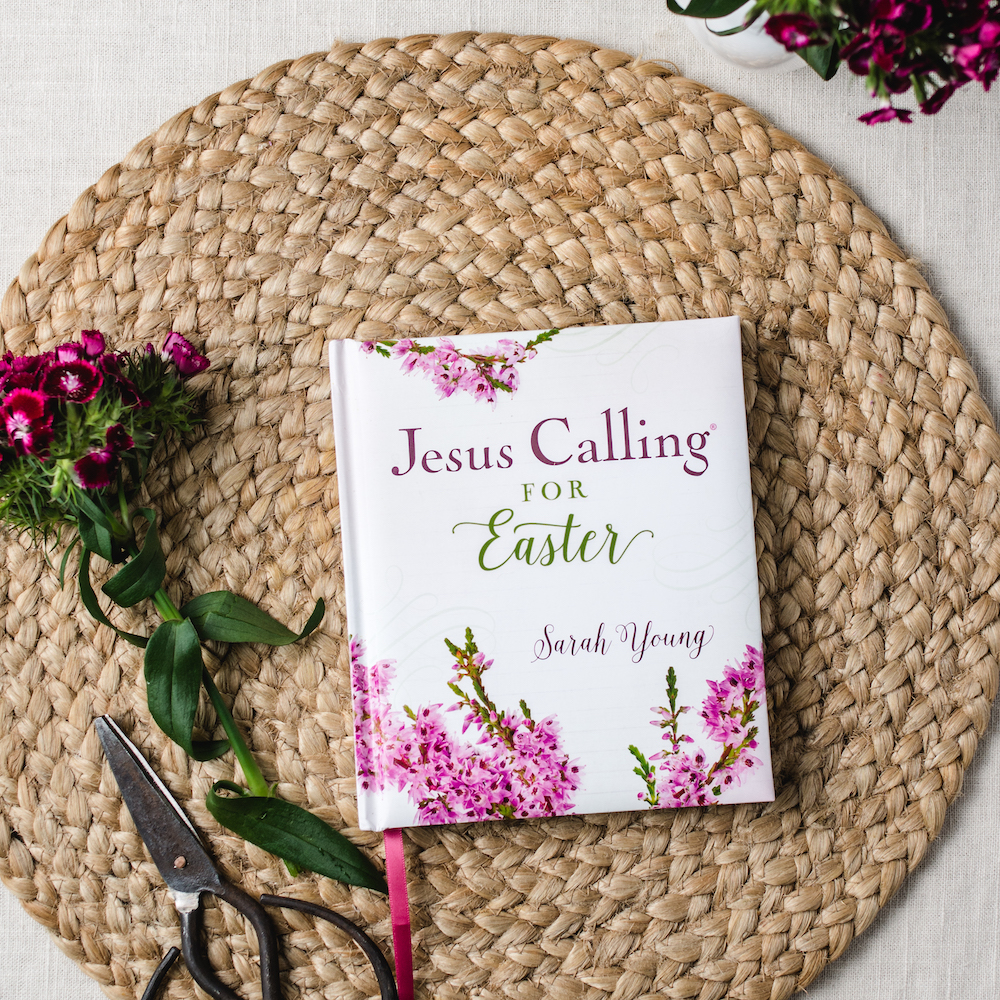Secrets that Make Us Sick and The Truth That Heals: The Warren Brothers and Amanda Jane Cooper
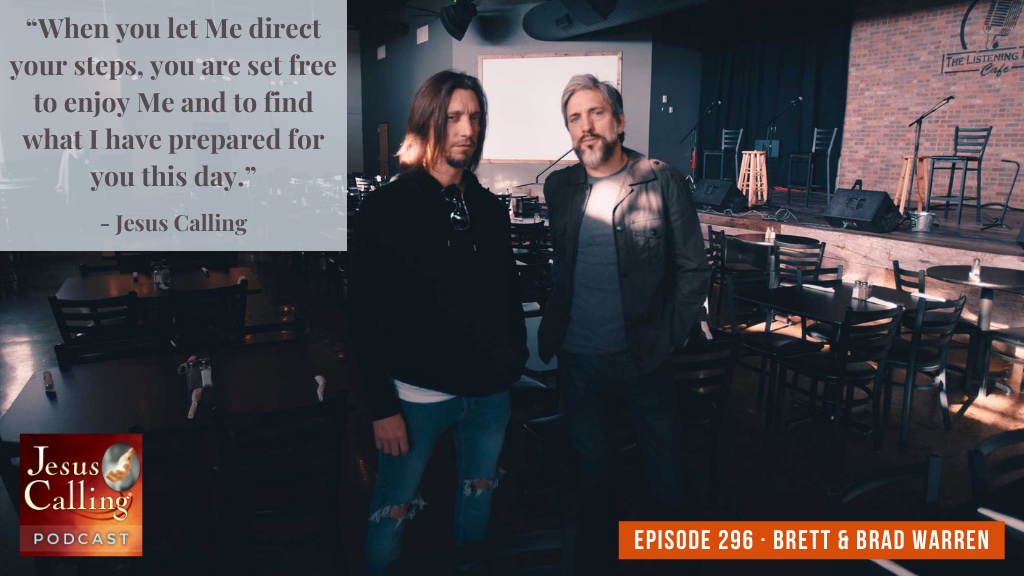
Content warning: This episode contains sensitive subject matter, including drug addiction and eating disorders, which may be triggering for some listeners.
Brett Warren: It’s been the worst year and yet the best year of all of our lives because we’ve learned what really matters, truly. And none of us are promised tomorrow. And so we just try to live each day in the moment, which, if I’m being really honest, is the hardest thing for me to do.
Any success that we’ve had is not because of how good we are or how hard we work, but just we’ve been thankful and grateful. And from those foundational points is where everything good that’s happened to us has happened.
Secrets that Make Us Sick and The Truth That Heals: The Warren Brothers and Amanda Jane Cooper – Episode #296
Narrator: Welcome to the Jesus Calling Podcast. When we are not completely honest with ourselves or others about our problems, struggles, or emotional pain, we can find ourselves disconnected from the world and may find ourselves turning to drugs, alcohol, or other addictive behaviors to combat our shame. This shame can grow over time and fuel our addictions to become even worse. But there is hope in overcoming these destructive cycles—and we don’t have to live in the shadows of our secrets. Jesus tells us in the Bible that if we follow Him we can know the truth, and that truth can set us free.
Our guests this week battled their own secret pain and addictions only to find the freedom that comes by pursuing the truth that Jesus so readily wants to show us. We’re talking with country music artists and songwriters Brett and Brad Warren from The Warren Brothers and Broadway, film, and television actress Amanda Jane Cooper.
Let’s start by hearing from the Warren Brothers.
Brett: My name’s Brett Warren, and I’m half of the writing duo The Warren Brothers, who used to be artists. But now we just write songs and publish people. And I’m a father and a husband and I have gray hair, and I like to swim.
Brad Warren: Brad Warren. I am fifty-one percent of the songwriting duo, The Warren Brothers. I’m also a father and husband, and I’m fifty-two years old. I’m still in the music business.
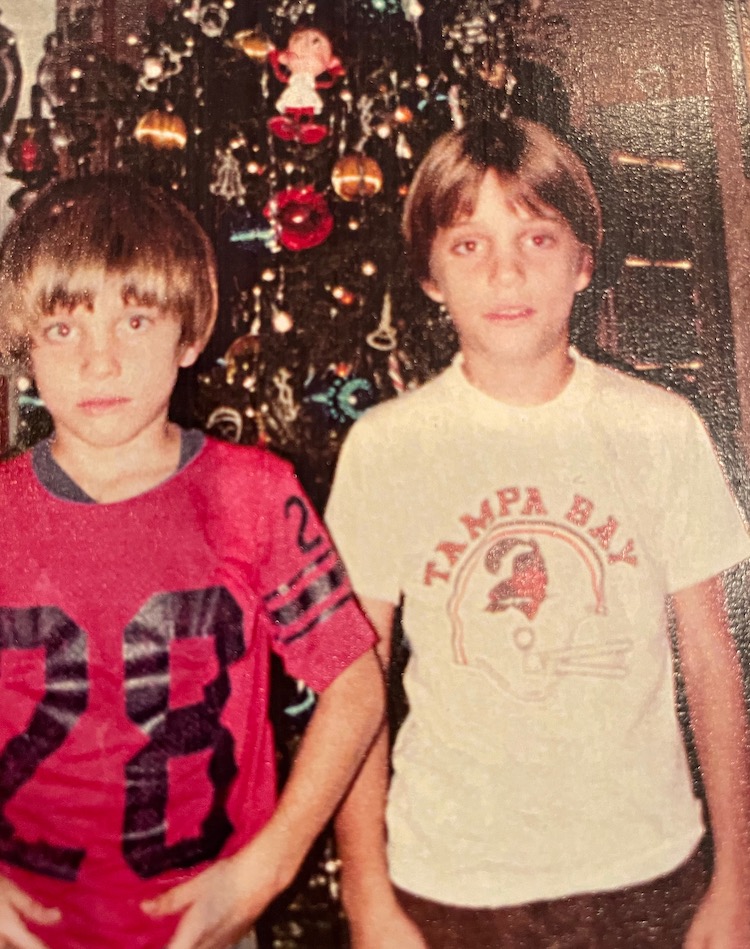
We grew up in a really, really strict Southern Baptist church, a very Christian home. Both of us kind of rebelled against it very early. We didn’t have a television. I mean, we didn’t ever have a television, like our whole childhood, because my parents thought it was bad for you. We ate healthy food. My dad would wake us up at like five in the morning, and the whole family ran three miles together, which is so embarrassing to run past your friend’s house at like six in the morning when their parents were coming up for the paper. So it’s really kind of a different upbringing, and everything we did was a church—went to a Christian school at the church, well is the start of our story, which would be a big circle back to God, and I mean a big circle.
Being so sheltered from anything secular in our family, a friend of mine had a Van Halen album, Women and Children First, and they were on the front cover of the album with ripped jeans and like Eddie Van Halen, a cigarette in his guitar string, I was like, ‘Oh my God, that’s the coolest guy on earth. I want to do that.’ And my sweet seventeen-year-old son thinks I’m as good as Eddie Van Halen because he knows nothing about music.
Brett: It’s sweet he thinks you’re that good.
Brad: But yeah, there was an appetite that absolutely could not be quenched, was what we had for music. And I started earlier than Brett and my little band, which consisted of me and one friend, we needed a drummer and a singer, and he could do both. And he was like, ten, you know, like, “Hey, guess what? You’re in our band.”
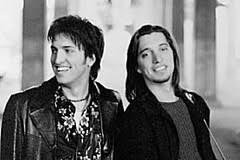
Brett: I mean, eighties rock and Van Halen 1984, it was just like the greatest thing we’d ever discovered. We just thought it was phenomenal and that’s what we wanted to do. It’s the only thing we’ve ever wanted to do. It’s all we’ve ever done, I think. Since I was eighteen, I haven’t worked any other job except music for a living, playing clubs or someone’s bar mitzvah or a wedding or a birthday party or whatever we did. Literally, it’s been a long time.
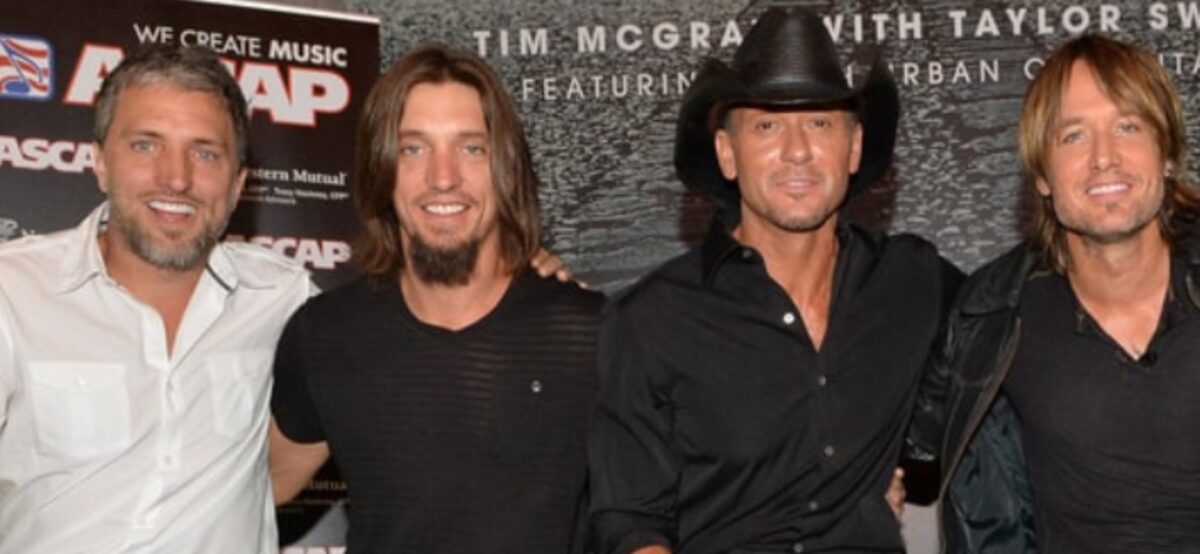
I remember when the first songwriter here, a guy named Buzz Cason, liked our songs and then introduced us to Tom Douglas, and he liked our songs, and Tim McGraw liked our songs—when somebody that you know has done it before and is good at what they do believes in you, it helps. We had that as well. But the two of us, if someone said, “You can’t write songs for a living, you’re not good enough,” it didn’t tear us down, it lit a fire in us. We’ll spend the next ten years proving that guy wrong. If you said we couldn’t do something, we were going to, you know, spend a long time trying to make you eat those words.
Brad: It’s a good sign of rebellion.
Brett: Yeah, I mean, it was. And so anytime someone doubted us or said, “You can’t get a record deal,” or “You’re too rock and roll for country,” or whatever it was, we just dug our heels in and worked harder. I don’t know what that is, or I’m sure sometimes it probably wasn’t good, but sometimes we just muscled through for whatever reason. I think once again, that’s having someone else with you to kind of, you know, battle with you helps.
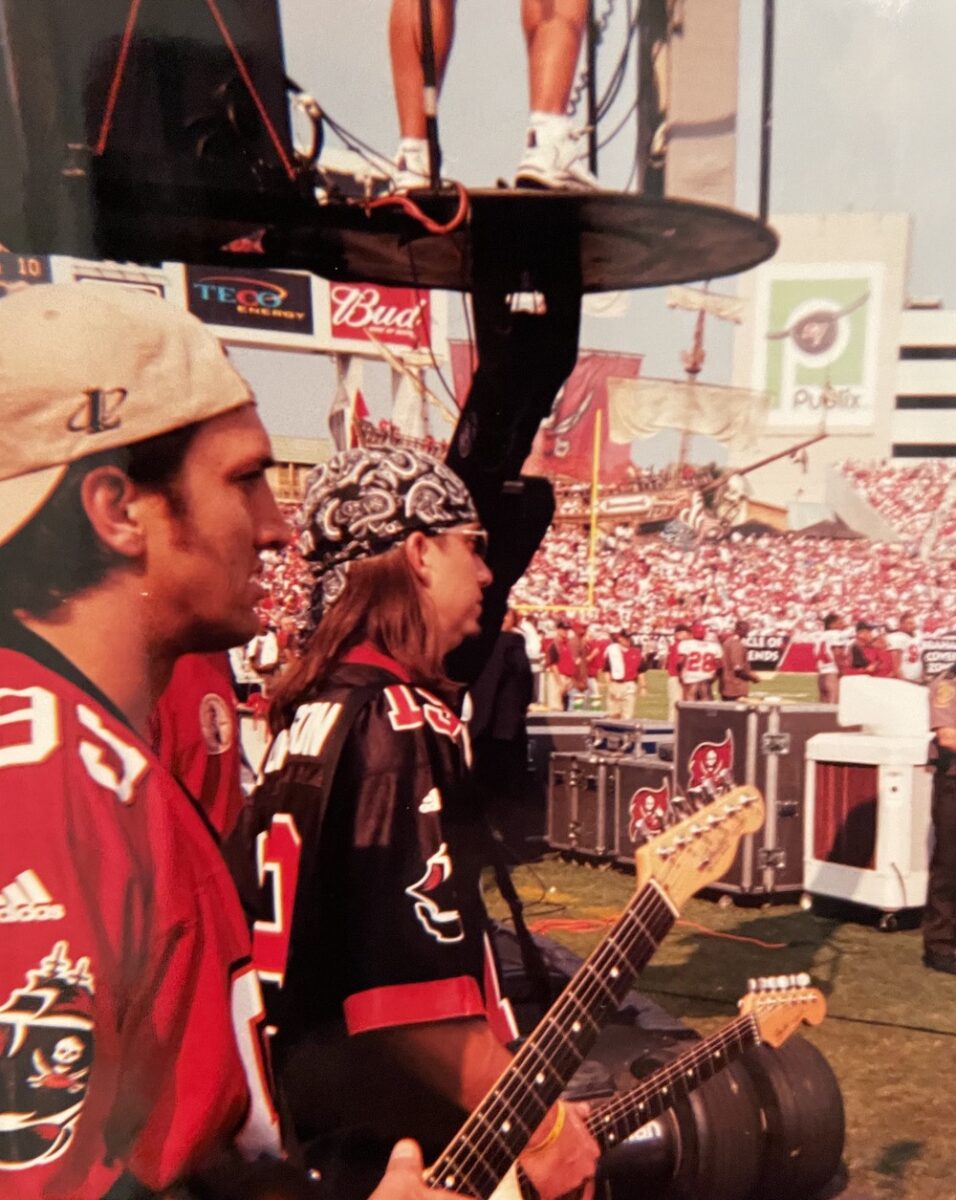
Yeah, we didn’t drink early in our lives. We waited until our early twenties and sort of started. We sort of just tiptoed away from the mothership. You know, everything you’d learned in life, your foundation and spirituality, it was sort of all religion at that point, not much relationship. And so I didn’t really plan to go that far, but you just sort of tippy-toe away from the boat far enough. And also, you look up one day and it’s a long way away.
9/11 happened and we lost our record deal. And our father was dying of cancer and passed away two days before Christmas, and we almost lost our publishing deal. We had little kids. And the partying and the drinking and being in a bar band and just having fun and hanging out with other people that were partying and drinking turned into medicating pretty quick.
“The partying and the drinking and being in a bar band and just having fun and hanging out with other people that were partying and drinking turned into medicating pretty quick.” – Brett Warren
Brad: We were completely empty, spiritually bankrupt, probably about to be financially bankrupt, but didn’t even think about it, and it just physically felt terrible. Everything was wrong, and I’m like, “Well, it’s all kind of this gathering around this one thing.”
I really believed that we, oh man, if we quit drinking, I will not be able to be creative. And I was protecting this amazing career we had of zero hits. We had written zero hits and I was like, “Oh yeah, oh gosh, we’re going to lose it. I’m not going to be able to write songs anymore.” Like, I never stopped to think that, You had no hits. So literally, the very first hit we had was in our first year of sobriety, so we thought we were giving something up creatively [by not drinking] but the truth is we were gaining tons.
“The very first hit we had was in our first year of sobriety, so we thought we were giving something up creatively [by not drinking] but the truth is we were gaining tons.” – Brad Warren
I knew that I was going to wind up in recovery down the road several years before it happened. I think Brett would probably say the same thing. We ironically got sober the same week. I actually went to rehab, outpatient rehab, and our lives changed. I mean, we surrendered that addiction. And I found—it’s the same God I grew up with—but I found a different doorway to God than I had ever found in church. I love recovery. It’s a great system and a twelve-step living is absolutely—biblically, it lines up.
The God I met in recovery and the God that I was introduced to as a little kid that was holding a lightning bolt that couldn’t wait to pelt me all the time, and then the God I’ve gotten to read in Jesus Calling, each of them, they’ve all circled into one.
“The God I met in recovery and the God that I was introduced to as a little kid that was holding a lightning bolt that couldn’t wait to pelt me all the time, and then the God I’ve gotten to read in Jesus Calling, each of them, they’ve all circled into one.” – Brad Warren
Brett: We just surrendered and handed it over to somebody that could actually do for us what we couldn’t do for ourselves. And that’s when sort of our sobriety and spiritual journey for real started.
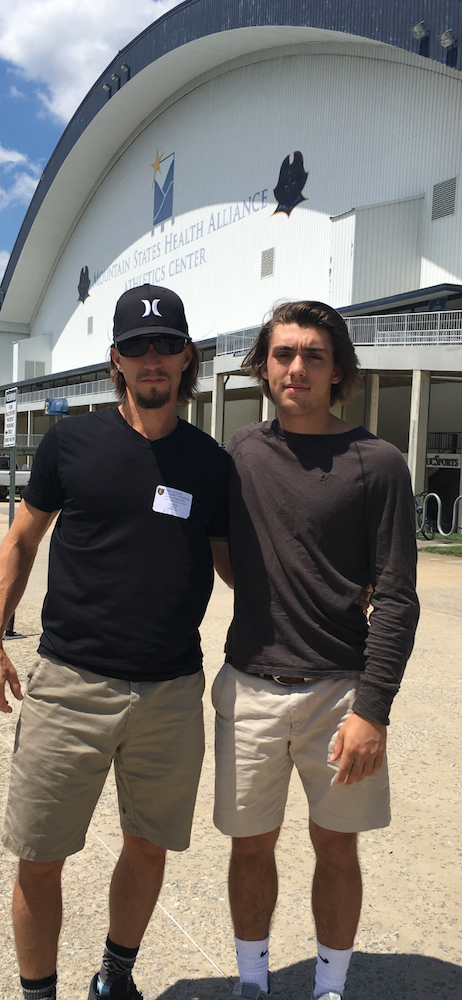
Brad: So May 18th of 2020, our oldest son, who was twenty-one years old at the time, Sage, passed away. He had struggled with the same things that I did. He was a great kid. He had a great year before he passed, which is an amazing gift to get from God. He was sober for a year. I had been sober for many years. Our relationship with God was in a good place.
It’s funny because it sounds like a commercial for Jesus Calling. But I mean, that was literally this book that my wife had on her stand, Jesus Calling, it hits me right between the eyes every single day and I can’t wait to read it. And then sometimes I’ll just read it again to feel better. We started reading it together every morning. And I mean, there’s so much incredible peace that we receive from that book.
The passing of our son has made us better people. Losing a child is the worst thing that could ever happen, but when you’ve lost the biggest thing that you can ever lose, it really makes you wear life like a loose garment. And I am not afraid to die. I’m not afraid to cry on camera. There are a lot of positives that come with something that negative.
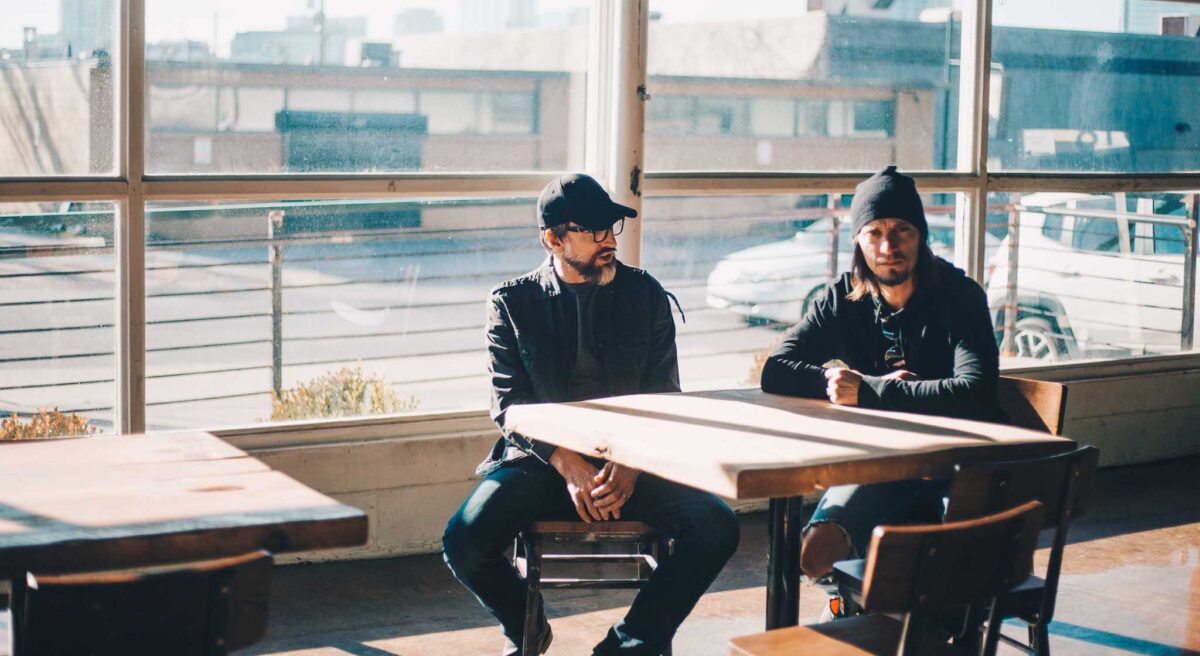
Brett: There were times where since Sage passed away that he’s counseling me, I’m like, “How are you? How are you so focused and driven?” He’s just at peace. There are two ways you could have gone: the selfish way or towards the cross. And he chose the right way and the providence of God, that God’s in control, and all that.
God is good. They always say that when something good happens to them, but [Brad’s] seeing that God is good in the worst thing that could happen to you, and the good that’s happened to our family as a whole, and the change that it’s made in all of us and increased our faith and trust. It’s the love that they have and the trust that they have in God that’s given them peace. So it’s not something that he’s done. It’s something that God’s given them through this, you know, a terrible occurrence.
“God is good. They always say that when something good happens to them, but [Brad’s] seeing that God is good in the worst thing that could happen to you, and the good that’s happened to our family as a whole, and the change that it’s made in all of us and increased our faith and trust.” – Brett Warren
Brad: We have used this situation to be of service. And my wife and I both have groups for parents that have lost children that have unfortunately grown over the last year. And I mean, we started pretty quickly. But it’s a time that unless this has happened to you, you can’t understand that. You just can’t understand it, just like being an addict or an alcoholic.
Brett: When you make a stand with your life and your living in recovery, it’s a lot of people that need help in that area. And God presents them to you, people bring them to you. They come to you and ask you for help, and that being of service is just part of our life now. And helping other people [is] what helps us to stay sober. And it makes us feel fulfilled.
“Helping other people [is] what helps us to stay sober. And it makes us feel fulfilled.” – Brett Warren
I always thought our purpose and meaning was songwriting. And I think that’s what we do, not who we are. But I think because of that particular job, it is kind of a cool job and you’re attached to a lot of cool things and famous people and those kinds of things. But really what it leads to is helping other people at a level that gives us both, to me, meaning and purpose.
Narrator: To learn more about the music of The Warren Brothers, visit their website at www.warrenbrothers.com.
Stay tuned to Amanda Jane Cooper’s story after a brief message.
Jesus Calling, Easter Edition!
The Easter season is filled with joy and hope. Now, there’s a new way to focus on the holiday with the new book, Jesus Calling® for Easter. With 50 Jesus Calling devotions selected just for the Lent and Easter season, Jesus Calling for Easter includes Scripture verses alongside breathtaking imagery and exquisite design. Jesus Calling for Easter makes a stunning gift for those who love Jesus Calling and would like a new way to observe the Easter season. To learn more about this beautiful new edition of Jesus Calling, please visit jesuscalling.com/books.
Our next guest is actress Amanda Jane Cooper, who’s appeared in beloved shows on Broadway, in film, and on television. Amanda shares a glimpse into the world of theater, opening up about her past addictions and an eating disorder that threatened her wellness. As she began a journey of recovery and also a pursuit to know the heart of Jesus–she began to be renewed from the inside out.
Amanda Jane Cooper: Hi, my name is Amanda Jane Cooper. I am an actor, storyteller, singer. I am blessed to get to do what I love on Broadway, as well as on-screen, on television, and in films.
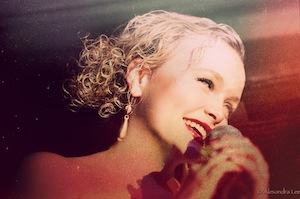
I played Glinda in Wicked on Broadway and have worked on several television shows out in Los Angeles like Glee, Jesse on Disney, Bones, CSI, SVU right here in New York City, as well as Hallmark and Lifetime movies. I love what I get to do, and I’m so grateful to be here today.
A Love for Theater is Sparked
So I grew up just outside of Philadelphia, in Valley Forge, Pennsylvania. I’m the oldest of three with two wonderful parents. I was a really, really shy kid growing up. And for instance, at recess, I would just stare at the concrete and wait for it to be over so that I could go back inside and hang out with the teachers. I was very shy.
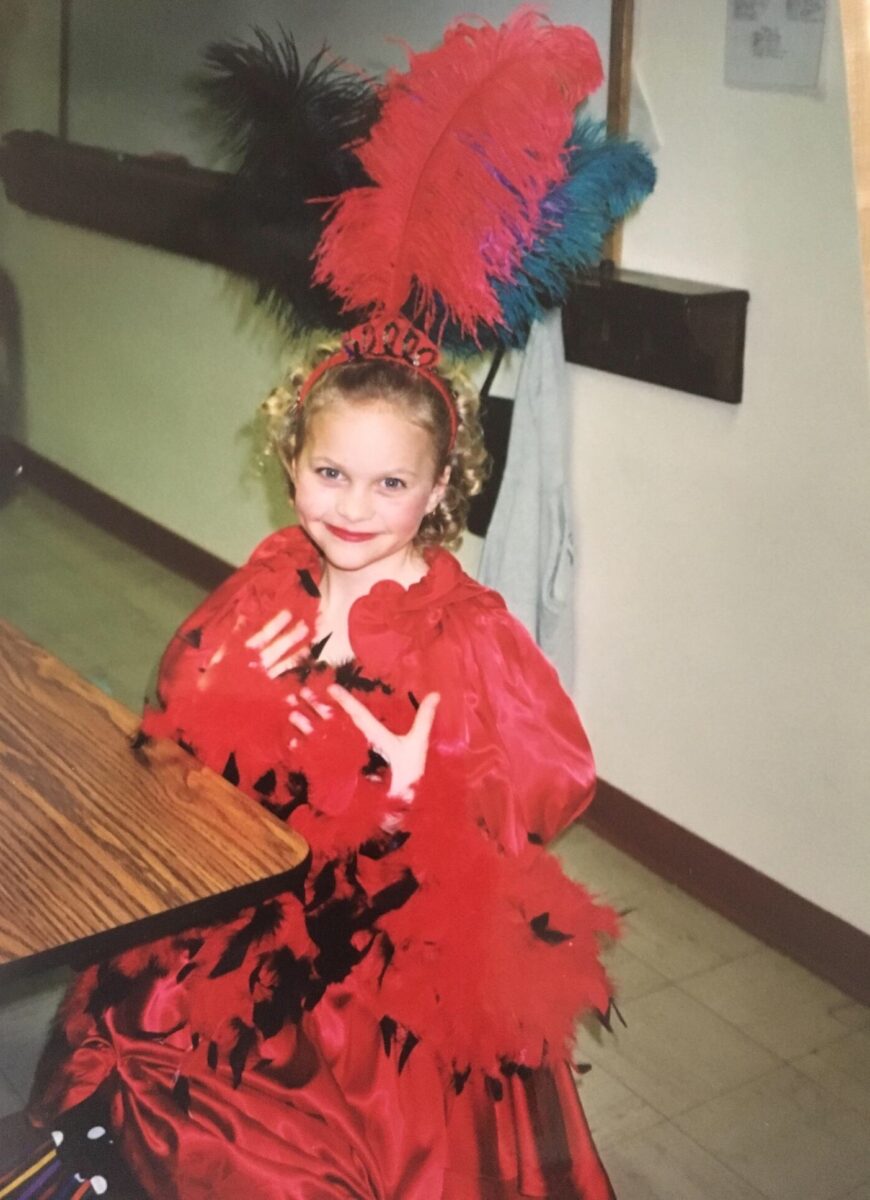
But all of that changed in fifth grade when I auditioned for the fifth grade musical. And the music teacher there, Mrs. Susan Messner, saw something in me and gave me a role that quite literally opened up my life. I started to develop passion and I made friends and I had community. I came out of my shell. I started to become very interested in acting. It became my number one passion, I did all of the plays and musicals, all throughout middle school and high school. And so when it came time to say, “Okay, what are my dreams for my life after high school?” I sort of was at a fork in the road of, Okay, do I want to go be in some kind of communications role or do I want to try this acting thing? And ultimately I decided, Let’s try this acting thing, and I’m so grateful that I did.

So I had the opportunity to go to Carnegie Mellon University, where I majored in musical theater and acting, and that experience was very sharpening as an actor. And while I was at Carnegie, I actually had the opportunity to meet the legendary Mr. Stephen Schwartz, who is the composer of Wicked, among the many other musicals. I was nineteen or twenty years old and I had the opportunity to sing “Popular,” which is Glinda’s famous song, in front of Mr. Schwartz. Needless to say, I was so nervous, but I went up there in my little pink dress and did my best. And when I was finished singing, he said, “You know, Amanda, I think you might play Glinda one day.” And I’ll tell you what, I just about passed out because Glinda was a role, as we all know, originated by Kristin Chenoweth, who you all know and love. I had seen her twice in the original cast when I was just starting high school, and so it meant so much that he saw something in me as a storyteller that could possibly fit the needs of his show.
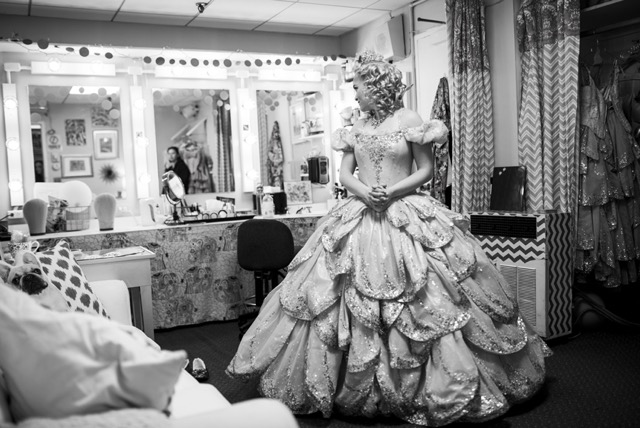
So after I graduated, it was about ten months after I graduated from Carnegie that I got a call from my agents saying that they’d like me to play Glinda on the first national tour. So I was so grateful to have that dream fulfilled at twenty-two and to tour the country, visiting all kinds of states and all kinds of people, bringing this beautiful, beautiful story of redemption to life.
Defining Success and Finding True Worth
It was also at this time that looking back, I realized, oh, my goodness, success was God to me. I didn’t really have a sort of deep relationship with God throughout high school and college. When I was a freshman in college, I developed an eating disorder and basically didn’t know what to do with my pain. I didn’t know what to do with my insecurities and my shame, and I really did think that I had to earn my value, earn my worth, prove my perfection. So that was through misusing and abusing my body, but also trying to fill that God-shaped void in my soul with relationships, with promiscuity, with substances, with success, even.
“I really did think that I had to earn my value, earn my worth, prove my perfection. So that was through misusing and abusing my body, but also trying to fill that God-shaped void in my soul with relationships, with promiscuity, with substances, with success, even.” – Amanda Jane Cooper
Body image issues are sadly incredibly common for so many women and young girls and men as well as young boys, and they can creep up without a lot of warning because of certain messaging that is within our culture and in our world. And so, yeah, my experience was very similar to that. It was sort of unexpected in a way. The first time I ever was unkind—or went against myself, I’ll call it—in this area was my second semester of my freshman year in college. And I had a moment where I suddenly became aware that the food that I was eating, I didn’t want it to be in my stomach anymore. And just as a warning for anybody, this might be a sensitive topic and sensitive content, but it was then that I started to engage in bulimia. There was a pattern of that for a while. Again, totally unexpected. It was never something that I had thought about doing. It was like one day I just said, “I have to get this out,” and I did. And it was so painful. There was a time that I pushed so hard that a blood vessel burst in my eye and my entire eye was bloody and red from the abuse I was inflicting upon myself. But at the time I didn’t see it that way. I just thought I have to do this. It was a compulsion and it started to overtake me.
I quickly learned that that method was too painful for me, so my new pattern became starving all day or doing exercise bulimia, followed by binging at night in secret. So I started to have a very, very abnormal pattern with food. This is when I was in the conservatory for acting. It’s a very active class load full of movement and such, where you really do need to fuel yourself. But I just wasn’t because I had this voice in my head telling me that my body needed to weigh a certain number, that my waist needed to be a certain size, and that I had to do everything I could to get it.
And I thought, If I can be successful, I will matter. All my problems will go away. I will be a winner in life. You know, like, I had this sort of story in my mind that that was true. And so at twenty-two years old, when I got one of my dreams, I thought it would solve everything, but it didn’t. And on the outside, everything looked kind of shiny and incredible. But on the inside, I was really, really struggling.
I was so tumultuous with myself, with my life. I was making a lot of really dangerous decisions. At the time, I was hurting a lot of people. I had a shoplifting habit. I had an issue with pornography and promiscuity and just did not understand my worth and value and then did not treat others with that same dignity, either. And I was just basically running myself ragged. And again, on the surface, everything looked pretty good. I had jobs and I was working and I was “successful.” But I had this sort of secret life and there just came a day when I was so exhausted and honestly scared by some of the choices that I had made.
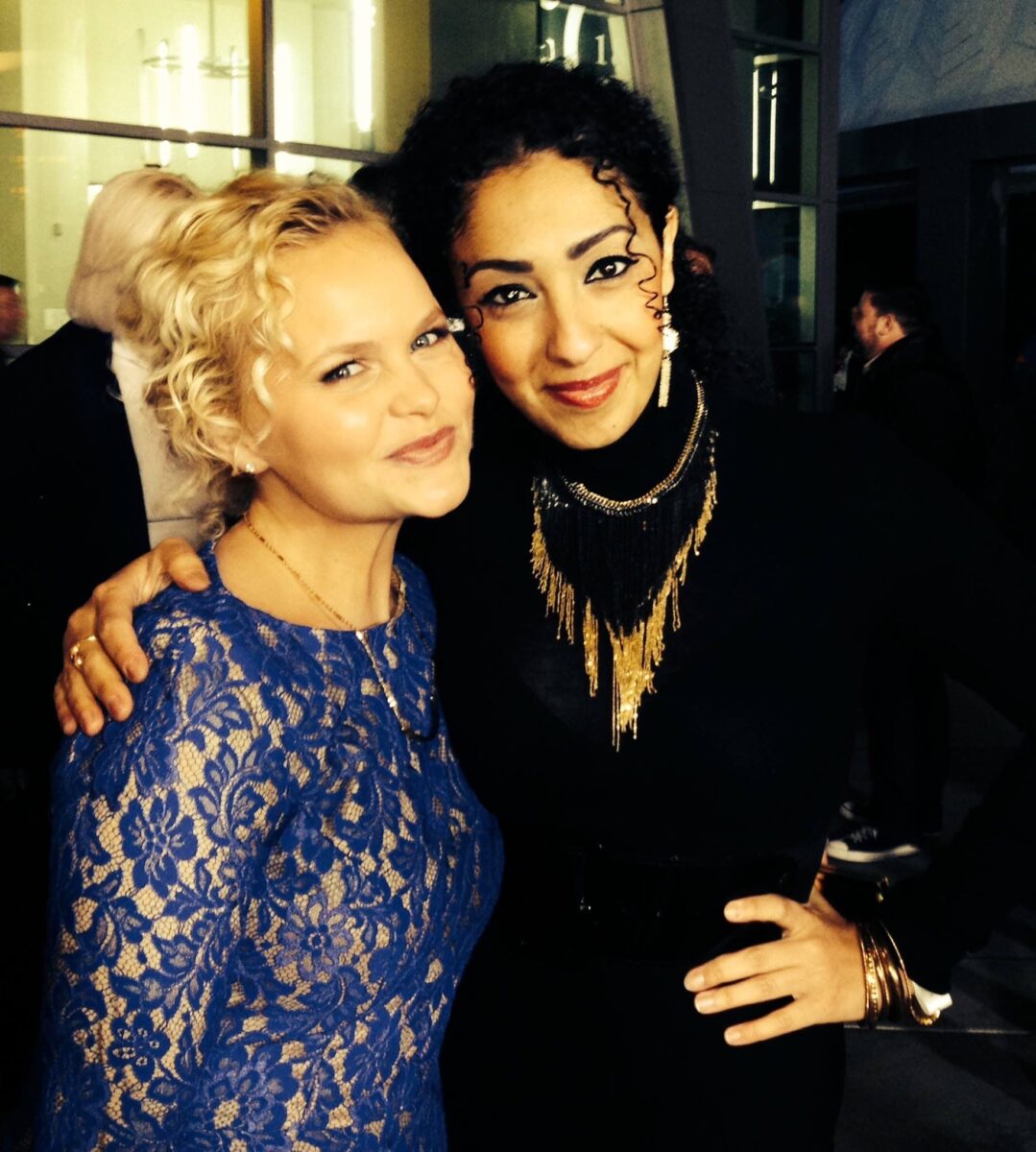
I ended up at a Hollywood party where I met my mentor, Alice Issac, who ultimately led me to the person of Jesus. And everything changed. Everything changed. I just knew in my soul that Jesus was Lord, I knew in my soul that I needed a Savior, and I knew that He was it. So I got baptized in 2013, continuing to do this film and TV out in Los Angeles. But more than that, just coming to understand who I really was through God’s eyes and coming to understand my real purpose on this Earth more and more.
He really did a mighty work in me to heal me from these disorders and these compulsions and to bring me into a place of joy with my body where I am now in a place where I’m so grateful to just, like, have a stomach, you know? I have a new perspective that God says who I am. I do not need to “prove” to the world my worth through a certain size or through a certain weight at all. God looks at the heart and He wants to tend to our hearts. And so I’m so grateful to be in a space now where I have a good relationship with food. I see it as fuel. You know, I get to work out. I get to get my heart rate up, to take care of myself. But it’s no longer in a way that punishes me. It’s in a way that celebrates that there is breath in my lungs. And I just desire that for every single person who feels like they’re in captivity.
“I have a new perspective that God says who I am. I do not need to “prove” to the world my worth through a certain size or through a certain weight at all. God looks at the heart and He wants to tend to our hearts.” – Amanda Jane Cooper
I am so grateful to be telling you this story from a place of freedom and of healing. So for anyone who is listening, I just want to communicate that freedom is possible. Hope and healing are absolutely possible, and I am so grateful to be living in that testimony today. But back then, I just truly hated myself, and I didn’t know what to do with my pain and insecurity, and shame. I didn’t know what to do with it, so I turned on myself for five or six years.
What Does God Say?
I need Jesus every day to continue to heal me. But it was so beautiful to see that transformation happen from truly so dark to then living in the light in this way. By His grace, by His love, I was healed from all the other compulsions that I listed. And I started to really see myself through His eyes and then treat others with that same dignity.
I’m not perfect at it even today, right? We all are a work in progress. But He delivered me from so much. He delivered me from a life that if I would have continued going down that path, would look completely different today.
Freedom is absolutely possible in all of these areas. And I fully believe that by the blood of Christ and His healing power, we can be set free from addictions, compulsions. We can go to Him in distress, pain, anger, insecurity. He is big enough and good enough, better than good enough, to handle whatever we bring to His feet. And He really longs, I think, to cover us and to heal our hearts in those ways.
“I fully believe that by the blood of Christ and His healing power, we can be set free from addictions, compulsions. We can go to Him in distress, pain, anger, insecurity. He is big enough and good enough, better than good enough, to handle whatever we bring to His feet.” – Amanda Jane Cooper
Narrator: To learn more about Amanda Jane Cooper and her work, please visit www.amandajanecooper.com.
If you’d like to hear more stories about people who found freedom from their secrets by embracing truth, check out our interview with Ryan Sheckler.
Next Week on the Podcast: Danny Gokey
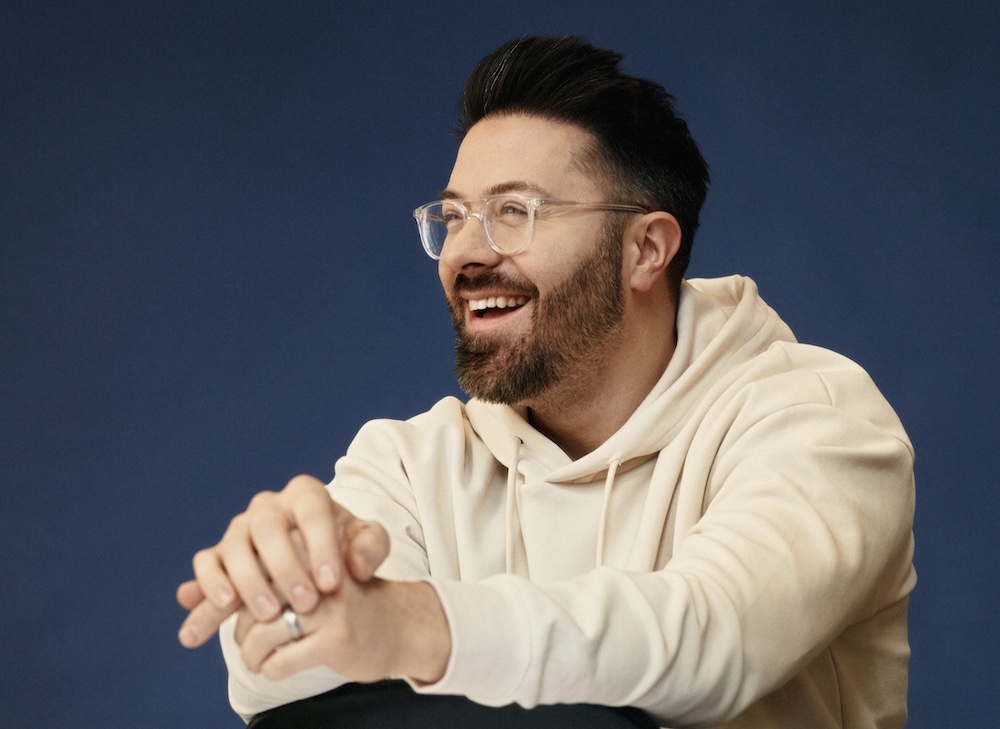
Next time on the Jesus Calling Podcast we hear from Danny Gokey, Christian music artist, and American Idol finalist. Danny shares about some of the more difficult times in his life, from losing his wife to struggling to find his place in music—and how he clung to prayer through all of it.
Danny Gokey: One of the things that I think is pretty cool is that God would give you markers along the way that keep strengthening you and keep giving you a fuel on the flame. Maybe the spark is small, but a little bit of fuel to get that flame hot again to say, “Hey, this is not over.” And that’s what happened with me. I just kept moving forward, kept believing God.
